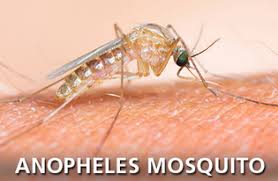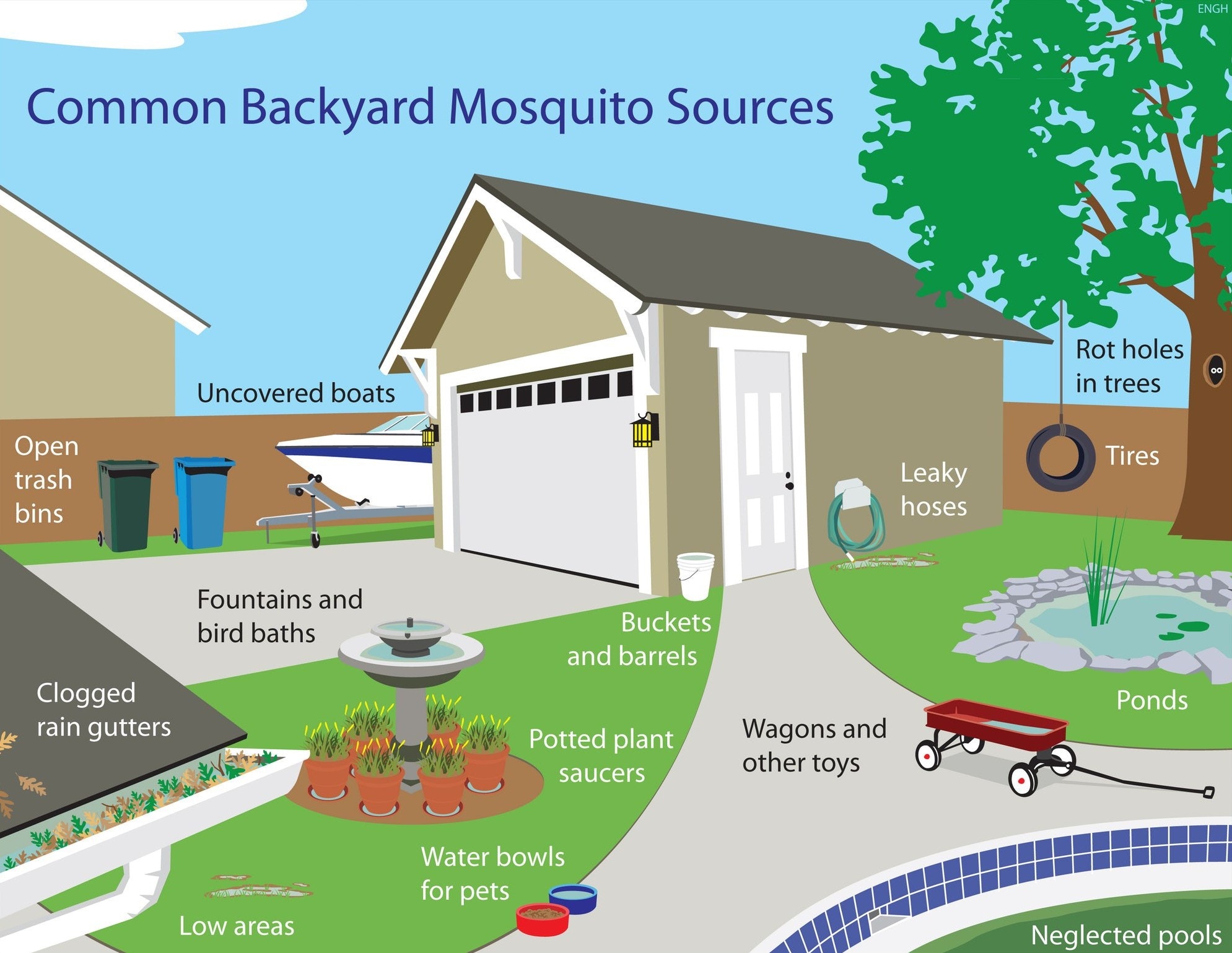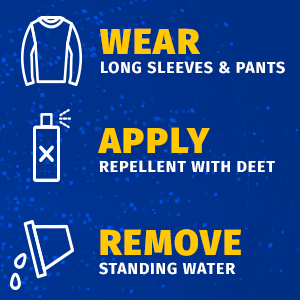The Environmental Services Division Mosquito Control Program applies proactive integrated mosquito management. Our program involves:
- Determining problem areas within Victoria County
- Continual surveillance of existing problem areas and potential areas of concern
- Establishing control measures to eliminate mosquito producing habitats (i.e., source reduction), controlling immature stages of mosquitoes (larvae and pupae), and controlling adult mosquitoes.
- Continual evaluation of the Mosquito Control Program and its effectiveness
The Environmental Services Division Mosquito Control Program uses a larvicide that contains a growth regulating compound applied while the mosquitoes are in the early stages of development and inhibits the mosquito’s ability to breed and reproduce. After a major rain event we will wait 24 hours to allow all rain water runoff to drainage areas. This will allow us to assess the areas with standing water that need larvicide treatment.
The Environmental Services Division Mosquito Control Program also uses ultra-low volume (ULV) cold fogging ground spraying equipment to applicate adulticide to kill off adult mosquitoes. The equipment is vehicle mounted and uses specific calibration for chemical application. This equipment is also calibrated to not dispense any chemical if the vehicle exceeds 20 miles per hour (mph). There are many factors that are taken into consideration before the Environmental Services Division can begin spraying.
The rate of application, temperature, and wind speed conditions must meet label specifications in order for larvicide and adulticide applications to be successful. The label is the Law! If the conditions are not favorable, spraying can not take place. Conditions that are not favorable for spraying include wind speeds exceeding 10 mph and during the heat of the day when the adulticide is less effective and mosquitoes are not at their peak flight activity. Mosquitoes become more active in the early evening hours to early morning hours.
If you live in a populated area of Victoria County and are experiencing a high volume of mosquito activity, you can call the Environmental Services Division (361)578-6281 ext. 3400 or file a complaint using the Complaint Form and your area can be targeted for spraying.
*Note: If you live in the City of Victoria please call Victoria Parks and Recreation at 485-3200 for mosquito complaints.*
Apiarist(Bee Keeper)

If you are an Apiarist within Victoria County please contact our office at (361)578-6281 ext. 3400 or click here to submit your info via email. We want to make sure we update our routes to protect your colonies.
Common Mosquitoes in our area:
Aedes aegypti
-
- These mosquitoes are known as container mosquitoes. See the below "Common Backyard Mosquito Sources" diagram below.
- They are the main type of mosquito that spread Zika, dengue, chikungunya, and other viruses.
- Because Ae. aegypti mosquitoes live near and prefer to feed on people, they are more likely to spread these viruses than other types of mosquitoes.
Culex
- Adult female mosquitoes bite people and animals. Mosquitoes need blood to produce eggs.

- After blood feeding, female mosquitoes look for water sources to lay eggs. Common areas to check in your yard for Culex mosquitoes are rainwater barrels, catch basins, and septic tanks
- Culex mosquitoes don’t fly long distances but have been known to fly up to 2 miles (3.2 km).
- Because Culex bite animals and people, they live outdoors or near homes.
Anopheles
- Adult female mosquitoes bite people and animals. Mosquitoes need blood to produce eggs.
 After blood feeding, female mosquitoes look for sources to lay eggs. Common areas are streams, grassy ditches, along river beds, and rice fields.
After blood feeding, female mosquitoes look for sources to lay eggs. Common areas are streams, grassy ditches, along river beds, and rice fields.- Position themselves at about a 45° angle to "bite"
Prevent Mosquito Breeding
You can significantly reduce the mosquito annoyance in your yard by eliminating potential breeding sites. Mosquito larvae (immature mosquitoes) need standing water to develop.

- Remove and properly dispose of all unnecessary artificial containers that hold rain water, such as old tires, buckets, cans, etc.
- Overturn water containers when not in use, such as wading pools and flower pots.
- Store boats, wheelbarrows and children’s toys so that they do not collect water.
- Change water and scrub birdbaths, plant trays, pet bowls, etc. inside and outside of the house weekly.
- Keep ponds well-stocked with fish and keep vegetation at a minimum.
- Fill in low lying areas of your yard and flower beds.
Unfortunately, due to the unpredictable weather conditions in Victoria County, mosquitoes can appear almost any day out of the year. Generally the mosquito population is more prevalent from early spring to late fall.
The 4 D's to protect yourself against mosquitoes:
